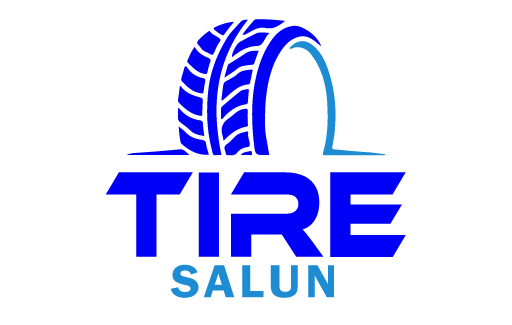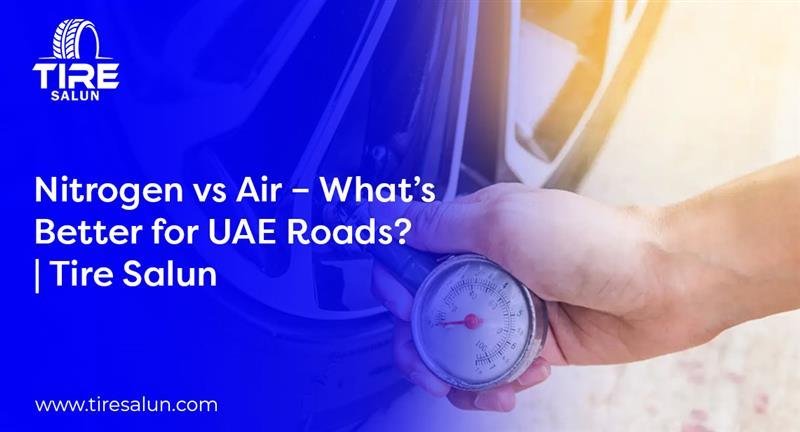Main action of proper tire pressure is a key element for safety, performance and fuel efficiency which is very much the case in a climate like that of the UAE. What many drivers wonder is which to put in their tires, regular compressed nitrogen vs air. As the debate between the two options has grown we have seen out pros and cons develop for each. At TireSalun we are of the think that an informed driver makes for better performance and longer lasting tires.
Understanding the Basics: What’s Inside Your Tyres?
Traditionally we see that most tires are inflated with what is mostly compressed air which is about 78% nitrogen, 21% oxygen, and 1% other gases. In the case of nitrogen tire inflation we use very pure nitrogen gas (usually 93 99% which also reduces the amount of moisture and oxygen in the air. This difference in make up brings out many results in tire performance, wear and pressure retention which in the UAE’s extreme weather conditions becomes even more of a issue.
Why Tyre Pressure Stability Matters in UAE Climate
In the UAE where it is very common for temperatures to go past 45°C, we see that tyre pressure is always changing. Also, in the issue of compressed air, there is that factor of moisture that causes the pressure to rise and drop which also causes in turn, a very unstable tyre pressure. That instability also has effects on performance, as well as fuel efficiency and overall tread wear. Also in the other hand, what one sees with nitrogen vs air filled tires is an element of much better pressure stability. It means you have a more responsive car and also that performance is more predictable regardless of weather and ambient temperature. For drivers in Dubai and the other Emirates this is very useful in the course of long drives and during the hot summer months.
Tyre Wear and Longevity: Does Nitrogen Help?
In the case of tire maintenance one great benefit of using nitrogen is reduced oxidation. Air which is what we put in tires at home contains oxygen and moisture which over time will break down the rubber from the inside thus shortening tire life. With nitrogen which is a dry and unreactive gas we do not see that internal rubber breakdown. Also as a result tire wear is more even and progressive which in turn increases tire longevity. Though tire rotation, alignment and load management are very important also, nitrogen inflation adds an additional layer of protection which in the long run extends tire durability.
Fuel Efficiency and Rolling Resistance
Proper tyre pressure has a direct impact on your car’s fuel efficiency. With under-inflated tyres we see increased rolling resistance which in turn puts more work on the engine and causes it to burn more fuel. Also, as nitrogen preserves pressure better over time it does a great job at keeping that rolling resistance down. That in turn results in better fuel economy which in turn is very attractive to drivers trying to save on fuel costs, in particular those that commute large distances on the UAE’s highway systems.
Cost Factor: Is Nitrogen Worth the Price?
One of the reasons that many drivers put off the switch to nitrogen is the price. We see that while top up of normal air is typically free or very low at that, nitrogen inflation is a step up in price. But what we do see is that in terms of pressure consistency, tire wear down and fuel efficiency which is put forth by some of the manufacturers and professionals may well worth the price for the frequent or long distance drivers. Also over time what we find is that the benefits in performance and also in the frequency of tire changes does in fact end up paying back the initial investment in nitrogen fills.
Availability Across UAE Garages and Tyre Shops
In recent time we have seen that nitrogen inflation has rolled out to many petrol stations and professional car garages in Dubai, Abu Dhabi, Sharjah and outlying areas. At TireSalun we present to you the choice between regular air and nitrogen in all of your tire needs. No matter what you drive, a luxury car, an SUV, or a daily commuter we have a team of experts that will advise you on what is the best fit for your tire care requirements.
Should Every Driver in UAE Use Nitrogen Tyres?
Not always do we have to. While it is true that nitrogen tires do bring about better results we do not require them for all vehicles and all road conditions. If you are mostly a short distance driver or check in on your air pressure at regular intervals then normal air may still do the job for you. But for those that put in a lot of mileage, which also may be with a full load, or see large changes in temperature from day to day, switching over to a nitrogen tire will greatly improve the health and performance of your tires in the long term.
Performance During Emergencies or Repairs
Another thing to note is which situation you have when you don’t find nitrogen out in an emergency. We see that mixing compressed air into a nitrogen filled tire won’t cause harm but it will drop the nitrogen level which in turn voids its benefits. Also safety is of the essence as a rule top up with air when you have to and get back to nitrogen at your next visit to TireSalun or any full service tire center that does nitrogen inflation.
Final Thoughts – Making the Right Choice with TireSalun
Between nitrogen vs air which tire fill you choose is based on your specific needs and budget as well as your driving habits. In the case of nitrogen tires they provide better pressure stability, reduced wear, improved fuel efficiency, and also better safety which you will see in particular under the very hot and variable weather of the UAE. At TireSalun we put that advice forward to you professionally and we back it up with great service and long term care for your tires. Also if you decide to go with air or make the switch to nitrogen we are here to take care of your tires’ health and safety.
FAQs – Nitrogen vs Air Tyres in UAE
Q1: Is it true that nitrogen is a better choice for tires than air?
Yes, nitrogen is a more consistent at maintaining pressure which in turn reduces the chance of sudden pressure drops which in turn improves safety.
Q2: How frequently should nitrogen filled tyres be filled up?
Less often then air filled tires. You will need a top up every 2 to 3 months which may vary depending on use and tire condition.
Q3: Can I change over from air to nitrogen in my present tires?
Yes in most cases we see to it that the air is replaced with nitrogen which is done best by professionals to ensure accuracy.
Q4: Is it ok to put nitrogen in tires?
In a crisis fill tires with air, but we do recommend to get back to full nitrogen content at your first convenience for best results.
Q5: Does air in rubber tires wear out less?
Yes we see that which is put forth is of a less oxidized and better pressurized quality in case of nitrogen which in turn causes less internal tire wear and thus we get to see better tire life.


